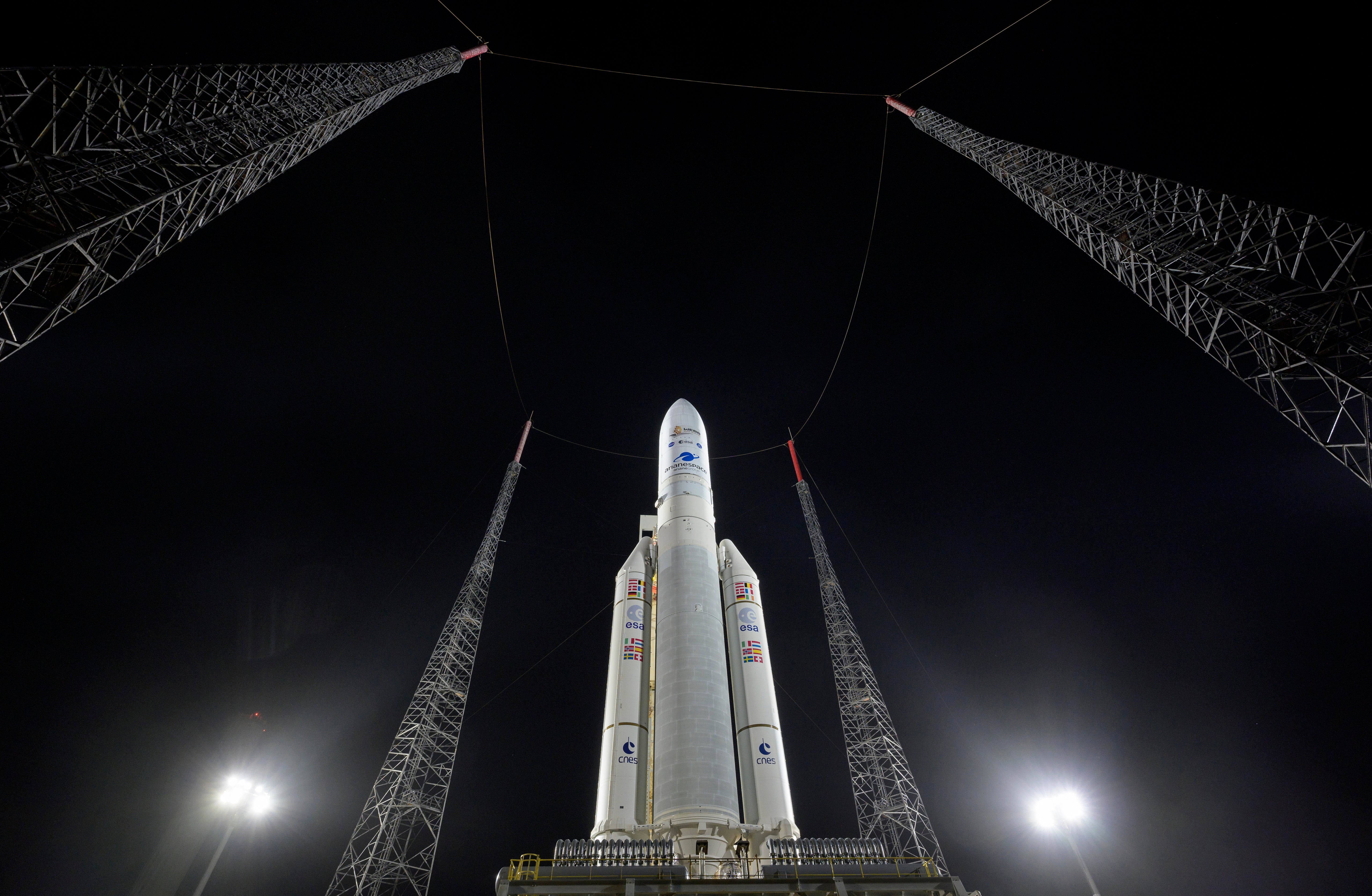James Webb Space Telescope set for launch on Christmas Day
The most powerful space telescope ever is set to lift off around lunchtime on December 25 from its launchpad in French Guiana.

The most powerful telescope to launch into space is set to finally lift off on Christmas Day following a further delay caused by windy weather.
The James Webb Space Telescope (JWST) is on the launchpad and due to take off between 12.20pm and 12.52pm UK time.
Controllers will be given a half-hour window to get the Ariane 5 rocket, which is carrying the telescope, airborne, but will target the very beginning of the time period.
JWST follows in the footsteps of the Hubble telescope as the next great space observatory.
Designed to answer unsolved questions about the universe, it will look further back in time than ever before to 400 million years after the Big Bang, the UK Space Agency has said.
The launch was scheduled for Christmas Eve, but a forecast of high-level winds at the Kourou spaceport in French Guiana forced it to be postponed until December 25.
The lift-off has been decades in the making, with development for the telescope beginning in 1996.
Construction was completed in 2016 and the launch was initially planned for earlier in December 2021.
A number of setbacks including a communications issue and an incident requiring an extra round of checks on the telescope pushed the date back.
But the space agencies have now completed a readiness review for the rocket and launch teams having conducted their final rehearsal.
Speaking at a European Space Agency (ESA) briefing, Nasa associate administrator, Thomas Zurbuchen, previously said that Webb would be able to make breakthrough discoveries in all fields of astronomy.
“We have lots of questions about the origin of galaxies and stars and Webb can carry that promise to answer them, the possibility of answering such big questions, the civilisation-scale type of questions, the ones that not only change what we know but how we think as humans,” he said.
“The questions of the origin of life keep us up at night, and it’s one that we’ve carried with us for millennia and we’re starting to answer with the powerful tools of science.”
The JWST’s partners are ESA, Nasa and the Canadian Space Agency (CSA).
Scientists from Durham University are among a team of 50 researchers from around the world taking part in the Cosmos-Webb programme, which will use JWST to survey a patch of sky near the constellation Sextans.
The cosmologists will work to map the dark matter around galaxies, with the aim of unlocking the secrets of the mysterious substance that makes up the majority of matter in the universe.
Bookmark popover
Removed from bookmarks